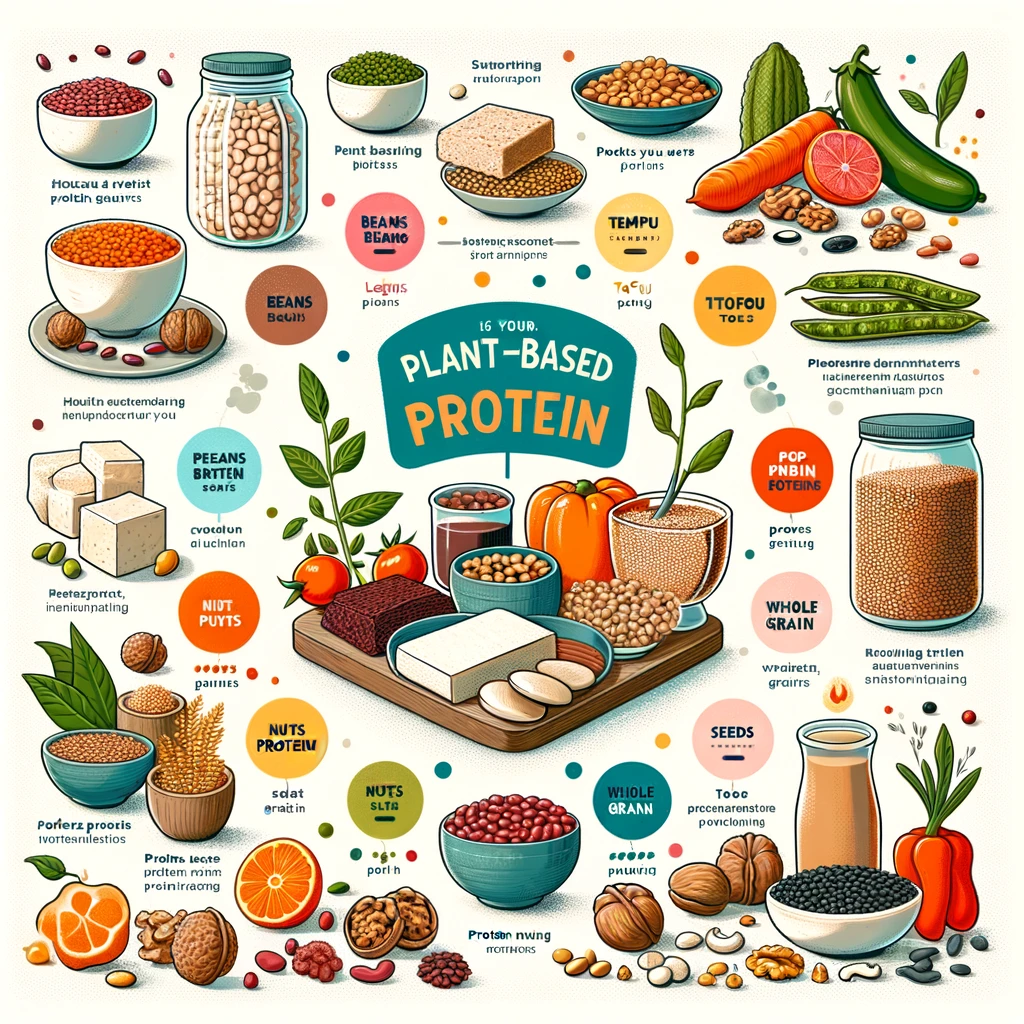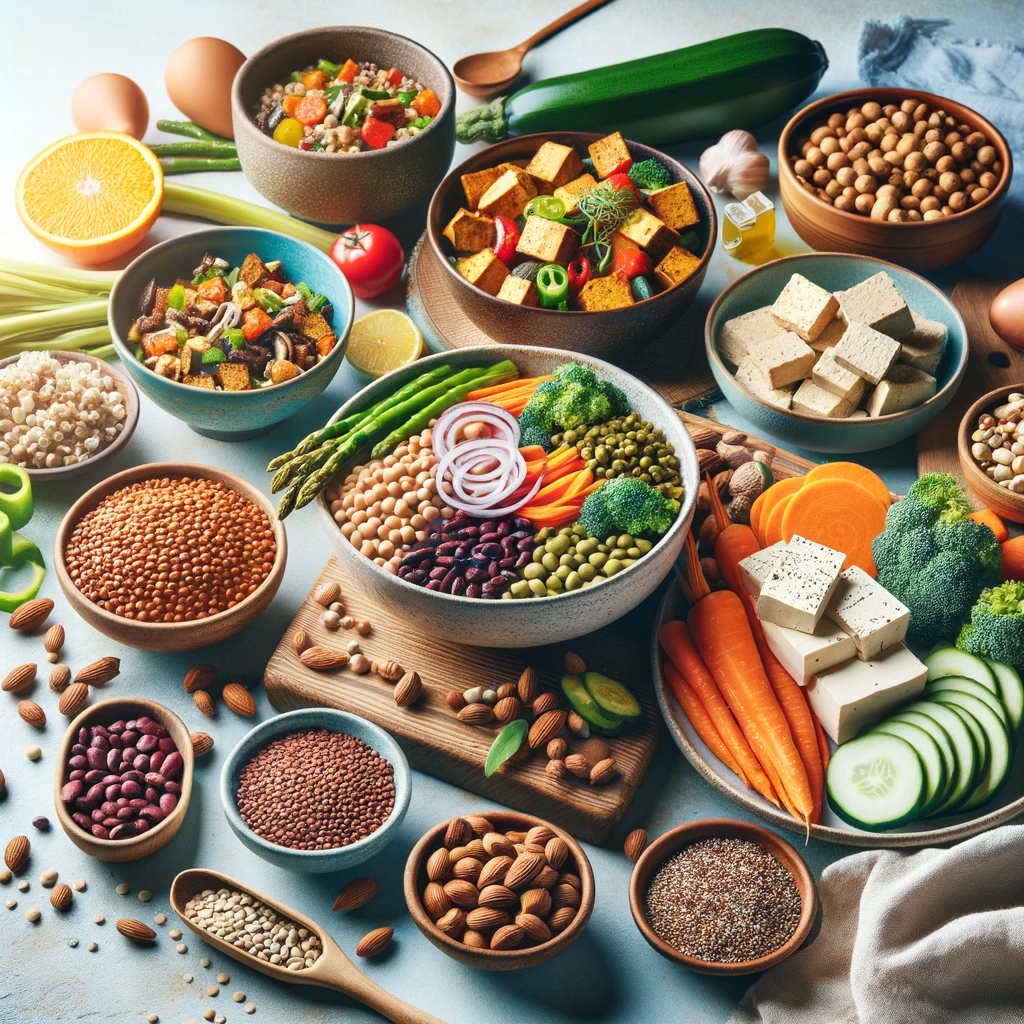C
Cheap Veg Food Protein Options Which You Can Include in Your Diet.
Introduction
Overview of Protein Importance in Diet
Proteins are the building blocks of life, playing a crucial role in our bodily functions. They’re essential for muscle repair, hormone production, and overall health. For those on a vegetarian diet, finding affordable protein sources can sometimes be challenging, but it’s far from impossible.
Benefits of Plant-Based Protein Sources
Plant-based proteins not only offer the essential amino acids needed by our bodies but also come with additional health benefits. They’re typically lower in calories and fats compared to animal proteins and are packed with fiber and essential nutrients.
Understanding Protein in a Vegetarian Diet
Protein Basics: What It Is and Why It’s Essential
Protein is composed of amino acids, which are organic compounds made of carbon, hydrogen, nitrogen, oxygen, or sulfur. Our body needs these amino acids to perform various vital functions.
Debunking Myths About Vegetarian Protein Sources
There’s a common misconception that vegetarian diets lack sufficient protein. However, numerous plant-based foods are rich in protein and can fully meet the dietary needs of individuals.

Cheap and Nutritious Protein Options
Lentils and Beans: A Powerhouse of Protein
Lentils and beans are not only affordable but are also incredibly rich in protein. They can be easily incorporated into a variety of dishes, making them a versatile choice for any meal.
Tofu and Tempeh: Versatile Soy Products
Tofu and tempeh, made from soybeans, are excellent sources of protein. They absorb flavors well, making them ideal for various culinary styles and preferences.
Seeds and Nuts: Small but Mighty
Seeds and nuts, like chia seeds, flaxseeds, almonds, and walnuts, are fantastic sources of protein and healthy fats. They can be added to smoothies, salads, or eaten as snacks.
Whole Grains: More Than Just Carbs
Whole grains like quinoa, barley, and whole wheat are not only good sources of carbohydrates but also contain significant amounts of protein.
Incorporating Plant Proteins into Your Diet
Meal Planning with Plant Proteins
Incorporating plant-based proteins into your diet requires some planning. Balancing these proteins with vegetables and healthy fats can lead to a nutritious and satisfying meal plan.
Simple and Delicious Protein-Rich Recipes
Creating delicious meals with plant proteins is easy and enjoyable. From hearty lentil soups to tofu stir-fries, the possibilities are endless.
Balancing Macronutrients in a Veg Diet
It’s important to balance macronutrients – proteins, carbohydrates, and fats – in a vegetarian diet to ensure all nutritional needs are met.
Special Dietary Considerations
Protein Needs for Athletes on a Veg Diet
Athletes on vegetarian diets may need more protein than the average person. Understanding the right sources and quantities is key to maintaining performance and health.
Addressing Common Nutritional Deficiencies
Vegetarians need to be mindful of certain nutrients that are commonly deficient in plant-based diets, such as Vitamin B12, iron, and omega-3 fatty acids.
Budget-Friendly Tips
Shopping Smart: Buying Protein on a Budget
Buying in bulk, choosing local and seasonal products, and being aware of sales can help in getting the most protein for your money.
DIY Protein: Homemade Plant-Based Protein Sources
Homemade plant-based protein sources like seitan or bean burgers are not only cheaper but also customizable to your taste preferences.
Additional Resources and Information
Further Reading on Plant-Based Diets
For those looking to expand their knowledge, numerous books, and research papers delve into the world of plant-based diets and protein sources.
Online Resources and Communities for Veg Diets
Online communities and resources can provide support, recipes, and tips for those pursuing a vegetarian lifestyle.
Conclusion
Recap and Encouragement for a Protein-Rich Veg Diet
In conclusion, incorporating a variety of cheap vegetarian protein sources into your diet is not only feasible but also beneficial for your health and wallet.
FAQs
- How much protein do I need in my vegetarian diet? The amount of protein you need depends on various factors like age, gender, activity level, and overall health. Generally, the Recommended Dietary Allowance (RDA) for protein is 0.8 grams per kilogram of body weight. For a vegetarian, it’s important to consume a variety of protein sources to ensure you get all essential amino acids. Active individuals or those with specific health needs might require more protein and should consult with a nutritionist for personalized guidance.
- Can plant-based proteins provide all essential amino acids? While most plant-based proteins are considered ‘incomplete’ as they lack one or more essential amino acids, consuming a variety of protein sources throughout the day can ensure you get all the amino acids your body needs. Foods like quinoa and soy products are complete proteins on their own. Combining different plant-based proteins, such as beans with rice, can also provide a complete amino acid profile.
- What are some quick protein-rich vegetarian snacks? There are many quick and protein-rich vegetarian snacks to choose from. Examples include Greek yogurt with nuts, hummus with vegetable sticks, roasted chickpeas, nut butter on whole-grain toast, cheese with fruit, and edamame. These snacks are not only rich in protein but also provide other essential nutrients.
- How can vegetarians ensure they’re getting enough iron and Vitamin B12? Iron can be found in plant-based foods like lentils, beans, tofu, fortified cereals, and dark leafy greens. To enhance iron absorption, pair these foods with vitamin C-rich items like citrus fruits or bell peppers. Vitamin B12 is not naturally present in plant foods, so vegetarians should look for fortified foods (like some plant milks, breakfast cereals, and nutritional yeast) or consider taking a B12 supplement.
- What are some creative ways to cook with tofu? Tofu is incredibly versatile and can be used in various dishes. You can marinate it and grill or bake for a tasty entree, scramble it like eggs for breakfast, add it to soups and stir-fries, or blend silken tofu into smoothies or desserts. Tofu takes on flavors well, so experimenting with different seasonings and marinades can yield delicious results.
- Are plant-based proteins suitable for weight loss? Plant-based proteins can be an excellent choice for those looking to lose weight. They tend to be lower in calories and fats compared to animal proteins and higher in fiber, which can promote satiety and help control hunger. As with any diet, moderation and balanced nutrition are key, so it’s important to pair these proteins with a variety of other healthy foods.





